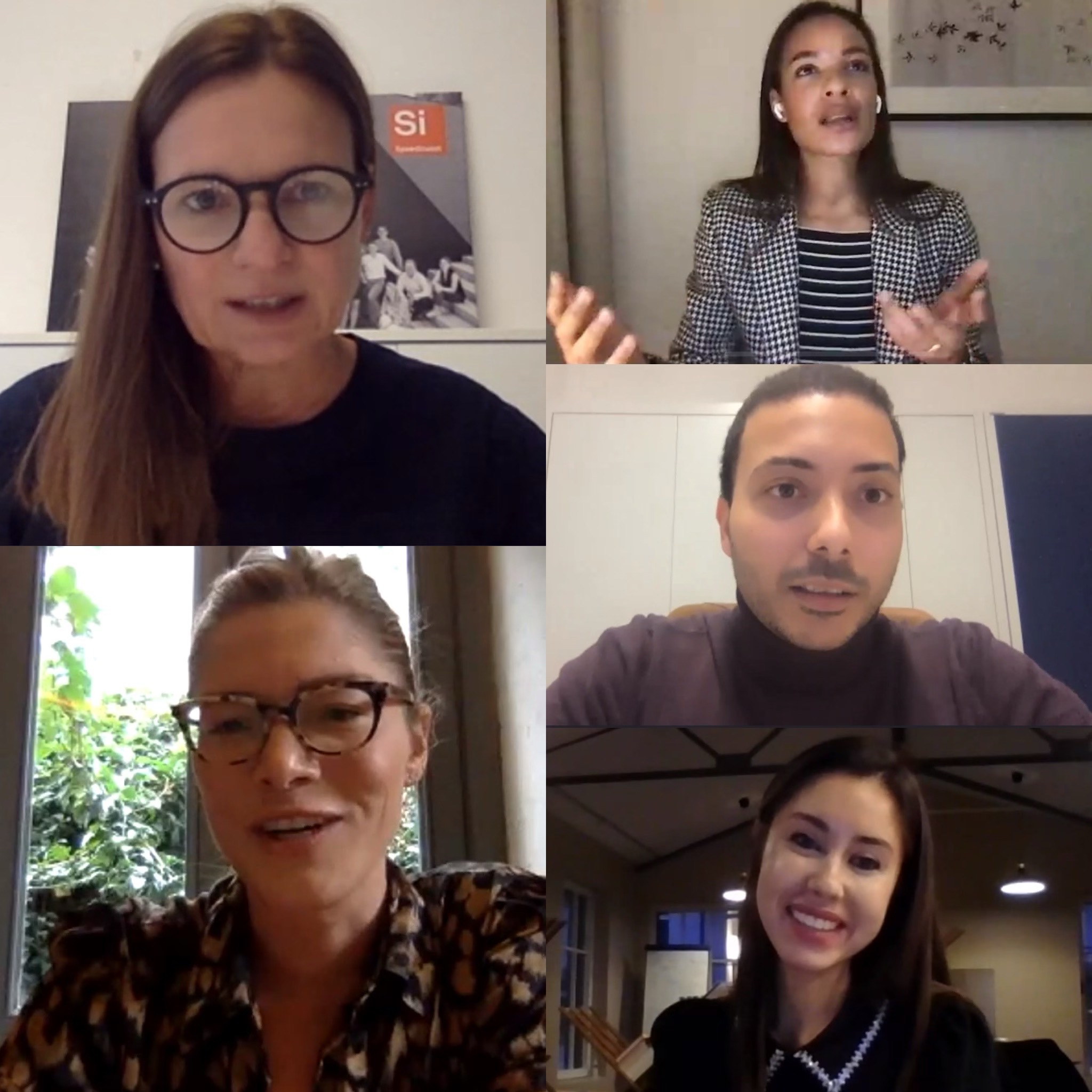
Is the VC pitch process failing female entrepreneurs?
Overall VC investments in 2020 are at par with previous years – but in Q3 2020, venture capital funding for all female founders is on pace for its worst year since 2017 (US data). In the week of Global Women's Entrepreneurship Day, four of Europe’s top early stage venture funds (Speedinvest, Amplifier, La Famiglia and Redstone) got together to look into the reasons behind the grim statistics and explore what changes need to take place for more female entrepreneurs to get to a term sheet.
The overall atmosphere in the pitching process can impact women negatively - even more so than the explicit questions.
“If you are a female entrepreneur, sitting in a room that is purely male-dominated, it affects the way you feel – you don’t feel relaxed, seen or represented. It is much more difficult to succeed in this environment,” shared Marie-HélèneAmetsreiter, partner at Speedinvest, quoting a female entrepreneur from the firm's Portfolio.
Siobhan Brewster, partner at Amplifier, highlighted the importance of correctly identifying the right investor and firm to pitch to.
The 'Ecosystem' panel moderated by Tzvete Doncheva, visiting analyst intern at the leading supply chain-focused firm, referenced research that found the questions female founders are asked indeed differ in framing – men tend to be questioned more about the opportunity and women about the risk.
“Women are also a lot more shy than men when framing the business opportunity ahead of them. They are a lot more critical in presenting the business they are building, not because it is less valuable but because their mind is going to all the things that can go wrong and are perceived as less confident in terms of stressing the things that can go right,” shared Judith Dada, partner at La Famiglia.

The speakers’ highlighted societal norms still come into play during the pitch process and may factor in the decision-making process. To overcome this, VC investors could help female entrepreneurs feel confident in overselling.
“When you pitch yourself to a VC, if you ask yourself afterwards ‘Was I overdoing it?’, then it was probably just about right. Overselling it shouldn’t be something negative but I see a lot of women perceiving it as it is,” continued Judith.
Mohamed Foulser, investor at Redstone agreed, reflecting back on the nature versus nurture perspective. "It’s a confidence thing – walking into a room confident, you would be less likely to be asked tough questions once you show you are able to defend yourself from the initial part.”
What are the strategies founders and investors can follow whilst still working on changing it for the system for the better?
"We (the venture community) have to be very explicit on what's the target we are heading to. Putting very clear objectives and talking about it, even to your own portfolio companies," added Marie-Hélène. Namratha Kothapalli, senior associate at Speedinvest, also shared details about the firm's internal initiative aimed to improve the diversity of the portfolio.
By being intentional about increasing the number of women on their investment teams (it is proven female investors are twice as likely to invest in women!) and acknowledging the diverse talent around them, senior decision-makers in venture can contribute to changing the grim statistics.
Furthermore, working on removing the ‘access barrier’ will enable more women to start and succeed in business.
"The reason why I went into entrepreneurship is because it suddenly moved into the sphere of my own network. The problem we should be solving is for women to be connected to other entrepreneurs. Those can be other women, but don't have to be women - let's not forget that," said Judith.
Marie-Hélène added: "One of the most important issues at stake here is network and is where many female founders miss out. They are so concentrated on the facts, building the business and working on the product, rather than building out these relationships that are so valuable. It will probably be my number one advice : Spend a fraction of your time and put it in your calendars to build up the network that can recommend you directly to investors."
Helping less networked founders overcome the ‘warm intro’ barrier and thus broadening access to venture capital is also one of the aims of Doncheva’s ‘Ecosystem’ project.
Although there is a long way to go, the speakers noted a shift within the industry has already taken place – and stressed that five years ago, a panel on this topic would not have been possible. There was also a uniform agreement that men should be actively involved in similar conversations to make a meaningful impact.
Venture capital investment is a driver of economic growth, fueling both innovation and job creation. When designing the future world, it should reflect the entire population – and to do that, diversity of thought on both sides of the table is needed.

